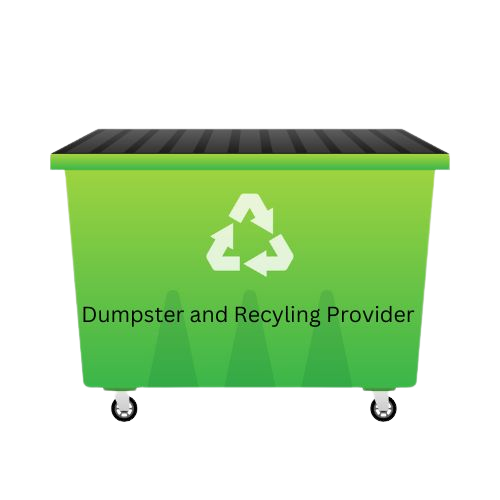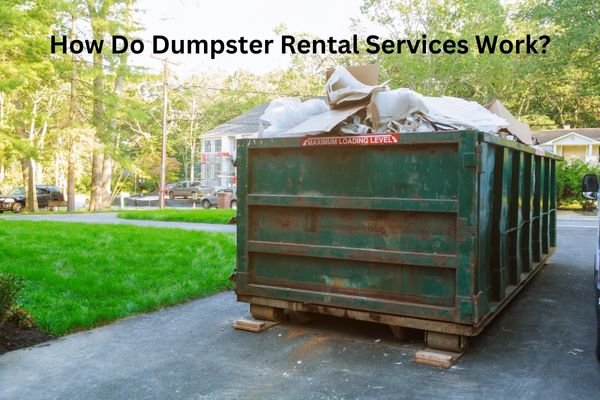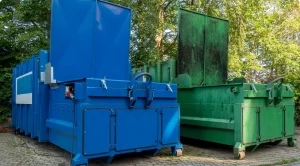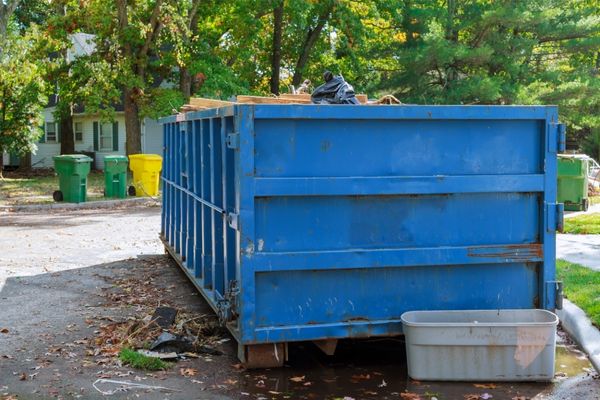
If you choose to rent a dumpster, you will be doing most of the work when it comes to filling it. However, the upside of that is that you can do the work on your schedule.
A dumpster will be delivered to you by your dumpster rental company, and you will be given permission to fill it over a week or so—the time may vary by company. The majority of businesses offer extended rentals if you need more time—for example, if you want a dumpster on hand throughout a renovation. The company will come back to pick up the dumpster and take it away for you when you are finished using it.
However, you should make sure to inquire as to whether you can use the dumpster for landscaping or driveway renovations. Concrete disposal is subject to specific restrictions and is prohibited by some businesses.
Also, keep in mind that some businesses may charge extra for keeping dumpsters for additional days. And if the weight limit is exceeded, there are frequently overage fees.
How does renting a dumpster work?
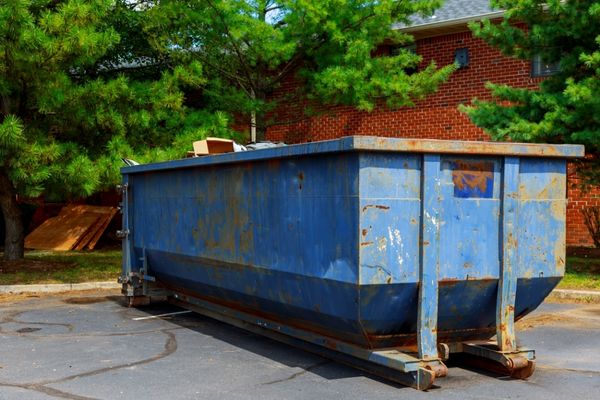
When renting a dumpster, the following is a typical sequence of actions:
1. Call first to schedule a delivery and get all of your questions answered.
Make sure that the dumpster rental company you choose takes care of your concerns. You can place your order once you have decided on the kind of dumpster you want and how long you want to rent it. Let the company know when you want the dumpster delivered and when you want it picked up.
2. Fill the Dumpster
Once the dumpster is in place, you can begin loading it. In order to make the most of the trash space, you should also have a plan. Fill in around large items, which should go in first because they typically weigh more and take up more space. In addition, know what you can and cannot discard in the trash.
3. Schedule a Pickup
When the dumpster is full, schedule a pickup. Also, keep in mind not to overcrowd it. And make sure the truck can get to the dumpster.
Types of Dumpsters
The disposal of waste is the same for all dumpsters and dumpster rentals. However, there are a variety of uses and advantages to dumpsters. Here are the most common types of dumpsters you can rent.
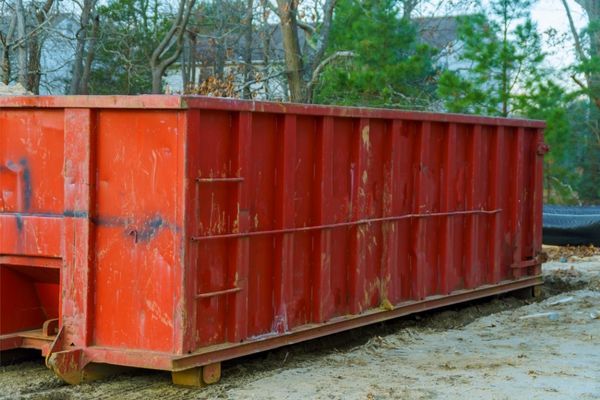
Roll-Off Containers
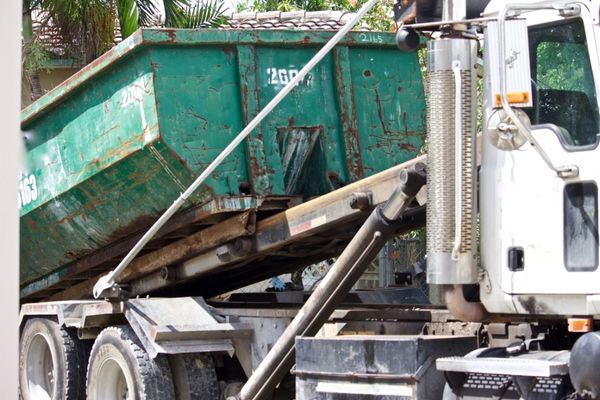
Roll-off dumpsters are large containers with capacities of up to 40 yards. A winch and sled or a robotic arm that pulls the dumpster onto the truck bed are the two primary methods for loading these dumpsters. They are ideal for landscaping, remodeling, and construction projects. These bins are large enough to hold a lot of trash before having to be emptied. This type of dumpster implies more ongoing project work.
Sizes Available: 10 Yards, 15 Yards, 20 Yards, 30 Yards, and 40 Yards
Commercial Dumpster
Commercial dumpsters have a medium capacity and come in sizes up to 8 yards. The front loader and the rear loader are the two most common types of commercial dumpsters. Although their methods of loading and dumping are distinct, the dumpsters’ sizes are comparable.
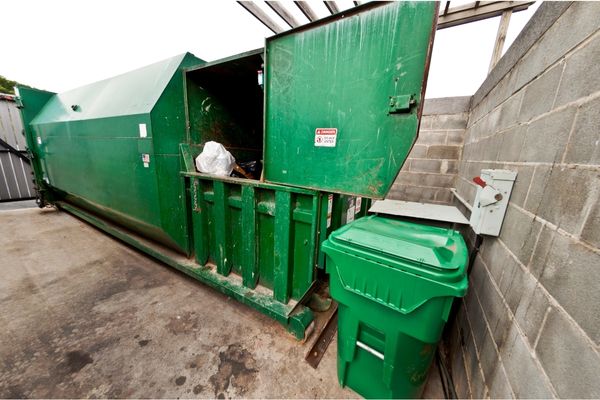
A dump truck can insert its front spikes into slots on either side of a front loader dumpster. The loading mechanism of rear loader dumpsters is more complicated and involves a winch and a hinge.
Businesses and commercial locations with a lot of waste benefit most from dumpsters. Because of their size, these dumpsters can be shared by multiple businesses. Commercial dumpsters are also ideal for apartment buildings.
Sizes Available: 2 yards, 4 yards, 6 yards, and 8 yards
What Can Be Put in a Dumpster?
You can put anything in a dumpster, with the exception of hazardous waste. The most frequently disposed of items in dumpsters include furniture, clothing, toys, yard waste, and building supplies like concrete and wood. Sprays, chemicals, and liquids, on the other hand, are examples of hazardous waste. These are dangerous and combustible and shouldn’t be thrown in the dumpster.
Televisions and mattresses/box springs may also incur additional costs. Check with your trash rental company if you are unsure of what you can put in a dumpster.
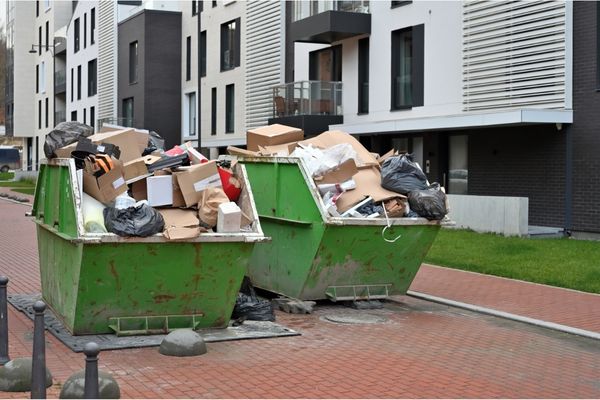
How much does a dumpster rental cost?
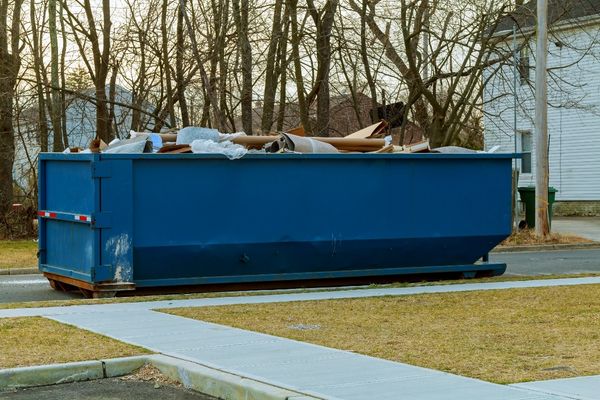
The cost of renting a dumpster will vary depending on the size, length of time you need it, final weight, and whether you need to dispose of any hazardous materials. The national average cost for a 10-yard dumpster is $350; the average range is between $306 and $450.
Contact Dumpster Rental Companies Near You
Find the best dumpster rental service for your needs, and conduct research and interviews with at least three different companies. Choose based on cost, availability, and disposal options.
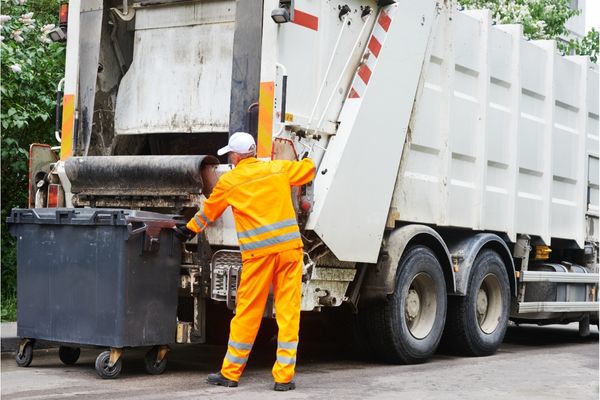
When you begin looking for a dumpster rental service, read reviews and choose a company with experience and good reviews from people in your community who praise its dependability and service. Give them a call and ask for an estimate. Then make an appointment for them to remove your trash or deliver a dumpster if it fits your budget.
